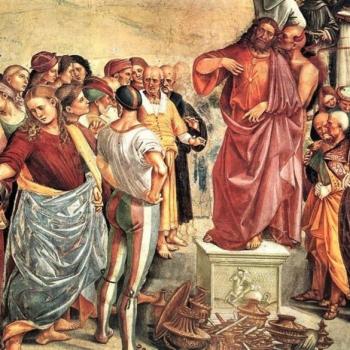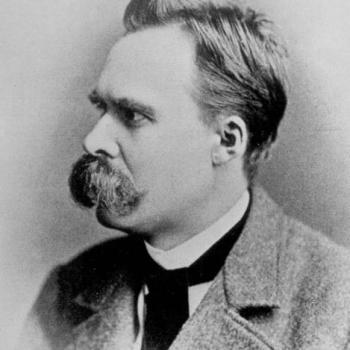Now this sounds strange to American ears. Surely, freedom is essential to happiness. But Kant relates the issue to God. Here is how Insole describes Kant’s dilemma:
Read about this after the jump. How would you resolve this dilemma? I offer some thoughts myself.
From Christopher J. Insole, Meet This Book: The Intolerable God – EerdWord
The central focus of this book is Kant’s lifelong concern with God, freedom, and happiness, from his earliest thought to his dying days. The book unpacks a central tension in Kant’s thought: we need God if we are to hope for happiness, as Kant thinks we must. We also need freedom, in a strong sense, in order to be moral. God must withdraw for this freedom to be possible. But if God withdraws, happiness can no longer be attained. I relate this drama to Kant’s theory of knowledge and his shifting views about what metaphysics can achieve.
The view of human freedom that Kant moves towards — and bequeaths to future generations — is one where to be free, we must be “protected” from divine action. This in turn determines Kant’s conception of happiness and autonomy. The picture that emerges is of a thinker who believes in God, and hopes for immortality, but who resists mystery, divine action, and revelation, and who, therefore, is unable to accept central claims of Christianity.
[Keep reading. . .]
How interesting that Kant associated freedom with morality, considering that today freedom is more often associated with immorality! His point, of course, is that for a moral action to be significant, we must be free to choose whether or not to do it. When we are forced to do something right, there is no moral credit for doing it.
But notice how this desire to be moral drives us away from God!
And however odd it might seem that moral freedom has to be in conflict with God, I have seen something like this argument in the New Atheists.
Contrast this with the way Luther handles both moral freedom and happiness.
Luther stressed the reality of sin, which takes away our freedom, so that our wills are in bondage. When we wake up to this reality through the Law, we can know the Gospel, which reveals that salvation comes not through attaining moral perfection but through being forgiven for our moral imperfection. Then comes “the freedom of the Christian,” a freedom from the Law that manifests itself in love for our neighbors.
Luther brackets “freedom” in Kant’s sense. He also brackets “happiness” in Kant’s sense. For Luther, religion does not necessarily make us happy; rather, we know God best through trial and suffering, guilt and repentance, just as He makes Himself known in His incarnation and His cross. Though this gives way to the Resurrection and to our own eternal happiness.
I wonder if, in demolishing Kant’s assumptions, Luther ends up connecting freedom and happiness after all.
I also wonder if the dichotomy between these two in Kant shows up elsewhere in the German philosophical tradition, which has given us Hegel, Nietzsche, and Marx. These thinkers, in turn, have provided the foundation for totalitarian governments, both Communist and Fascist, which take away their citizen’s freedoms in exchange for promises of security, community, and prosperity; that is, happiness.
















